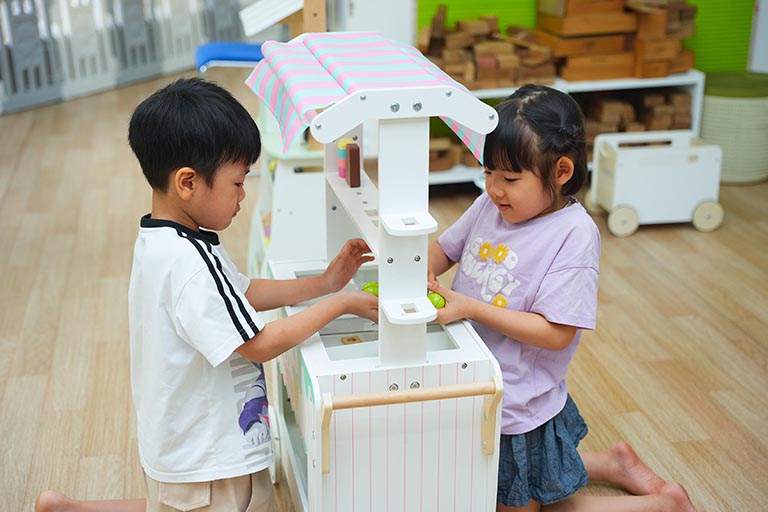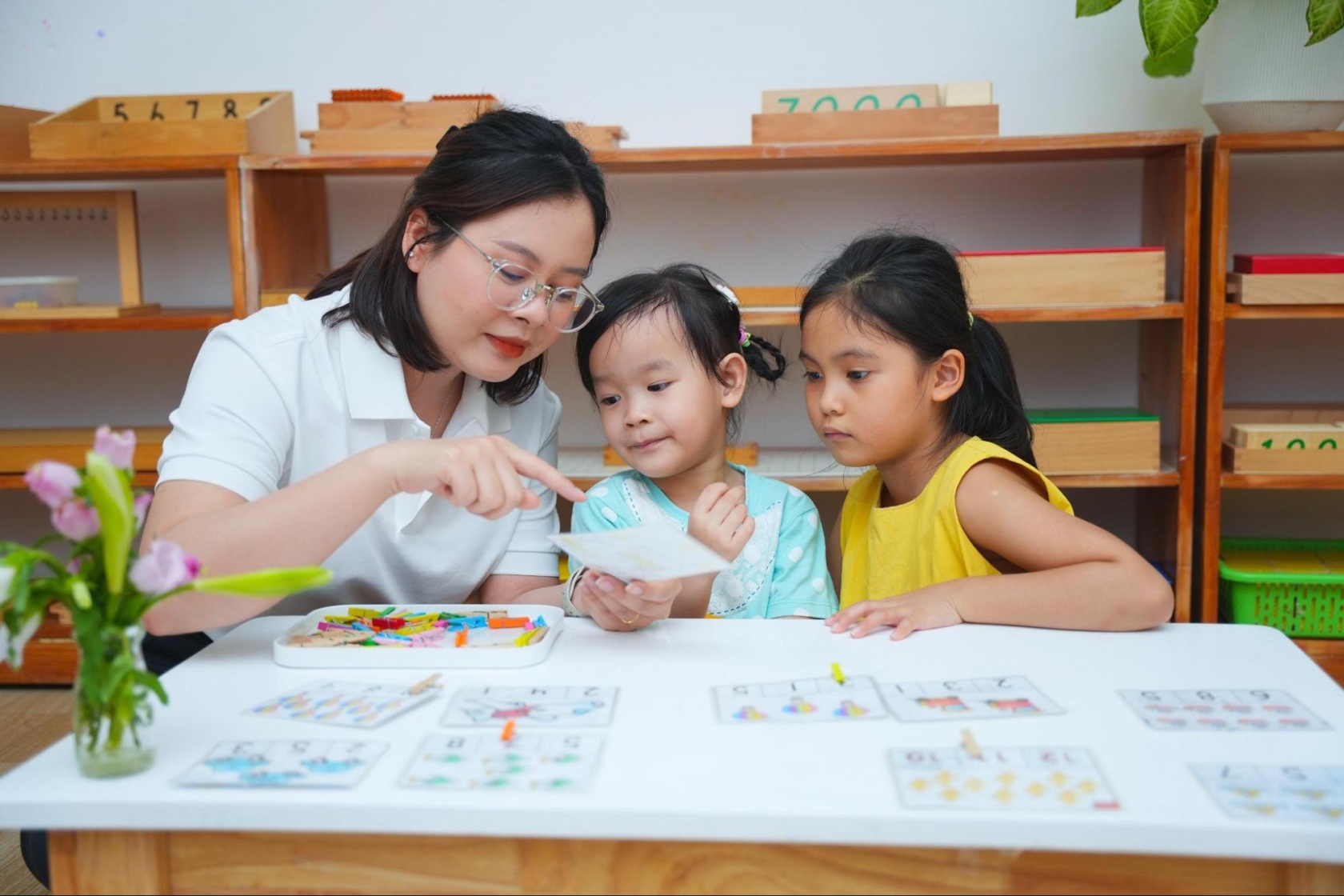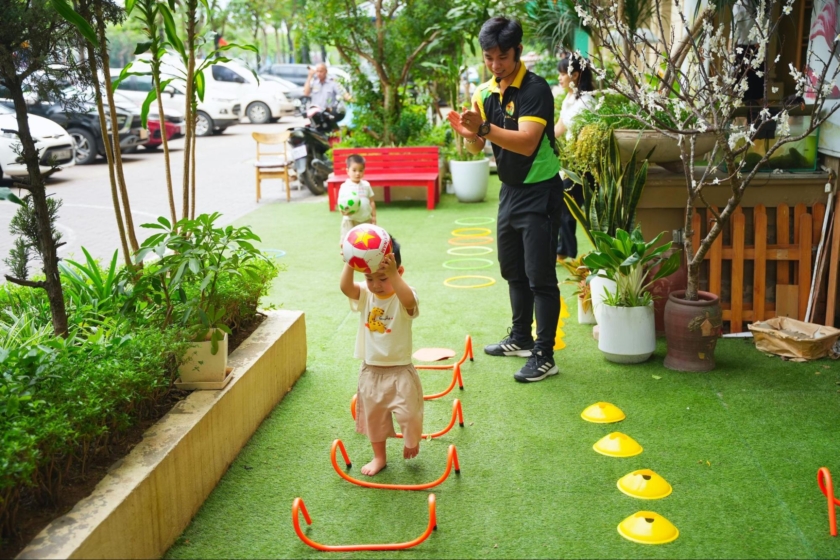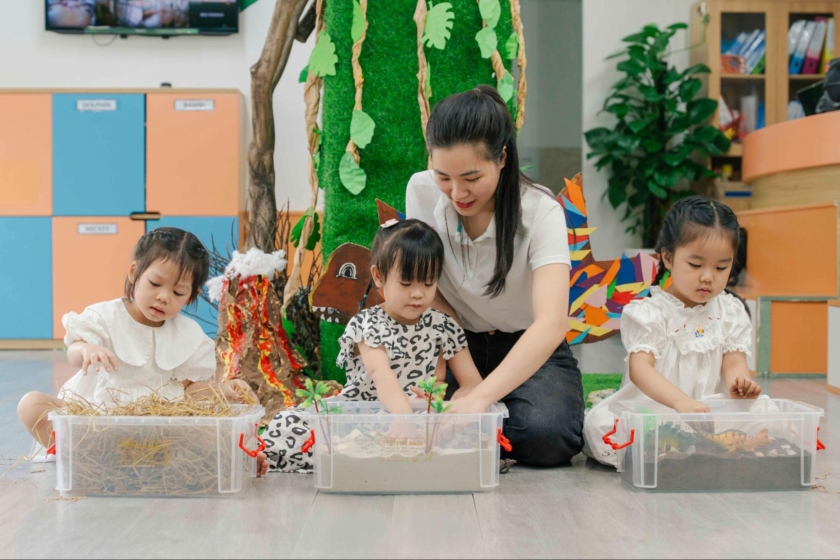A collection of 10 fun learning games to help children get familiar with English vocabulary, counting, comparing, and matching—using simple, everyday items at home.
Learning English & Math Through Games at Home – Fun and Effective
Why combine “learning through play”?
Preschoolers learn best through movement, repetition, observation, and hands-on experiences. Learning through games helps children:
✔ Absorb knowledge naturally
✔ Remember better and longer
✔ Increase interaction with parents
✔ Learn joyfully, without pressure
5 Simple Games to Introduce English at Home:
- Find the object by color – “Find something red!”
👉 Builds vocabulary for colors and listening skills
📍 Suggested words: red, blue, yellow, green, orange - Mystery Box – “What’s in the box?”
👉 Learn about textures and familiar objects
📍 Examples: ball, spoon, car, teddy bear - Quick-flip flashcards – “What’s this?”
👉 Reinforce vocabulary by theme through quick recall
📍 Themes: animals, clothes, food, toys - Action imitation – “Simon says…”
👉 Learn verbs while moving
📍 Examples: jump, sit, touch your head, clap - Guess the shadow
👉 Shine object shadows on the wall for guessing and vocabulary practice
📍 Suggested words: train, duck, apple, star…
5 Simple Games to Introduce Math at Home:
- Count household items
👉 Example: “How many chairs?”, “How many socks?” - Pair the socks – find matching pairs
👉 Develops comparing and sorting skills - Find the missing number
👉 Write number sequences with blanks: 1 – 2 – __ – 4 – ?
📍 Practice counting forward & backward, even & odd numbers - Arrange objects by size
👉 Small – medium – large, short – tall - Play mini supermarket
👉 Child acts as cashier—counting money, delivering items by request
📍 Learn concepts of more/less, value, quantity
Tips for Parents:
- Keep learning sessions short (10–15 minutes), but consistent daily
- Use simple items already available at home
- Encourage your child to respond; accuracy isn’t the priority—participation is
- Reinforce naturally through stories, songs, and games















